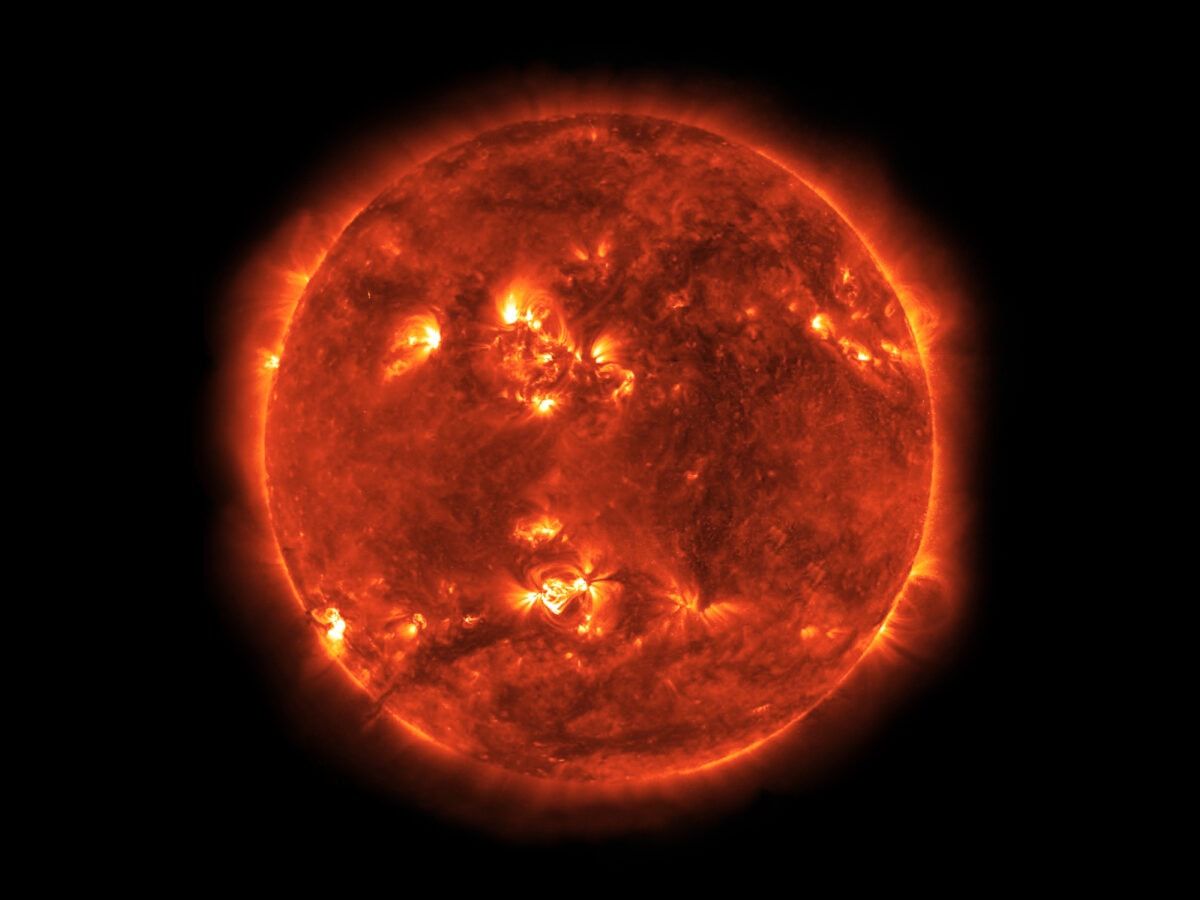Brace yourselves, Earthlings! Another solar storm could be brewing, promising radio chaos and dazzling auroras.

Earlier this month, the sun unleashed its fury with unprecedented coronal mass ejections (CMEs), disrupting global communications.

Now, that same sunspot, AR3664, is back in action, hurling a potent flare towards our planet’s direction.

NOAA raised the alarm, recalling the last severe geomagnetic storm watch issued back in 2005.

These storms wreak havoc on Earth’s magnetosphere, causing widespread disruptions to communication systems.

The recent solar tantrum sent shockwaves through GPS, power grids, and even farming equipment.

And now, as AR3664 unleashes its fury once more, experts are on high alert for a repeat performance.

Amateur astronomer Michael Karrer described the recent solar blast as unparalleled in his four decades of observation.

Though AR3664 isn’t facing us head-on, forecasts suggest it’s gearing up to throw some serious shade our way.

While not as intense as previous events, it could still trigger a level three radio blackout, wreaking havoc on GPS and radio signals.

These disruptions occur when solar radiation clashes with Earth’s magnetic shield, causing chaos in the ionosphere.

As the night falls, expect stunning auroras to dance across northeast Canada, a celestial spectacle of nature’s might.

This isn’t AR3664’s first rodeo; it first made headlines earlier this month before taking a cosmic detour.

While the last solar storm didn’t bring the apocalypse, it did cause headaches for farmers relying on GPS technology.

Thankfully, NOAA’s readiness prevented major catastrophes, keeping the lights on and the grids humming.

Across the globe, astronomers captured mesmerizing images of the sun’s fiery tantrums, a testament to nature’s raw power.

But here’s the kicker: scientists warn that these solar fireworks might just be a prelude to something bigger.

With predictions of a solar storm akin to the infamous Carrington Event of 1859, modern society braces for potential chaos.

Imagine a world where vital medical equipment goes dark and emergency calls vanish into thin air.

In space, the stakes are equally high, with satellites at risk of becoming cosmic collateral damage.

The memory of the 2022 geomagnetic storm still lingers, with up to 40 Starlink satellites meeting a fiery demise.

So, as the sun unleashes its celestial fury once more, Earth holds its breath, hoping to weather the storm unscathed.
